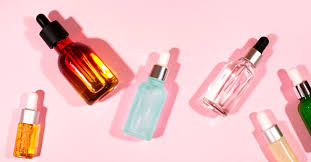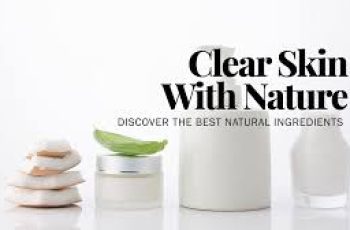
Why Should You Consider a Serum?
Serums often seem like mysterious skincare products, tucked between toners and moisturizers. Many people use them without fully understanding what they actually do for the skin.
If you’ve ever wondered whether serums are just hype or truly powerful skincare essentials, you’re not alone. We’re here to demystify the serum and explain why it deserves a spot in your routine.
Serums are not just a luxury—they can be a game-changer for your skin’s health, texture, and overall glow. So, let’s dive into what makes this small but mighty product so powerful.
What Is a Serum?
Serums are lightweight skincare products packed with high concentrations of active ingredients. They’re designed to target specific skin concerns like aging, dryness, acne, and discoloration.
The consistency of serums can vary, but most are water-based and feel light on the skin. Some serums may also have a gel-like or silky texture, depending on their formulation.
What makes them special is their small molecular structure. This allows serums to absorb deeper into the skin than creams or lotions, reaching the layers where real changes happen.
Unlike moisturizers that mostly work on the skin’s surface, serums deliver ingredients directly into the deeper layers. This is where they do their best work—repairing, restoring, and rejuvenating.
What Are the Benefits of Serums?
Serums are powerful multitaskers in your skincare routine. Their high concentration of active ingredients makes them effective at treating specific concerns with visible results.
Here are some key benefits of using serums:
1. Fight Signs of Aging
Serums with ingredients like peptides, retinol, and vitamin C boost collagen production. This helps reduce the appearance of fine lines and wrinkles over time.
By firming the skin and improving elasticity, serums can make the face look younger and more radiant. They also help prevent new lines from forming.
2. Hydrate and Plump the Skin
Hyaluronic acid is one of the most popular serum ingredients for hydration. It draws water into the skin and locks it in, keeping your face plump, dewy, and soft.
Serums are ideal for those with dry or dehydrated skin. They restore the skin’s moisture balance and prevent dryness without feeling greasy.
3. Brighten Dark Spots and Even Skin Tone
Serums with vitamin C, niacinamide, or licorice root extract help fade dark spots, acne scars, and uneven skin tone. They also prevent future pigmentation caused by UV exposure.
Over time, regular use leads to a more radiant and uniform complexion. Skin looks clearer, brighter, and more refreshed.
4. Protect Against Environmental Damage
Antioxidant-rich serums protect the skin from free radicals, which are unstable molecules caused by pollution, sun exposure, and stress. These radicals can age the skin and cause dullness.
Serums act like a shield, preventing environmental damage before it occurs. This helps preserve your skin’s youthful appearance for longer.
5. Treat and Prevent Acne
Serums with ingredients like salicylic acid, tea tree oil, or niacinamide can help control acne. They reduce inflammation, shrink active blemishes, and prevent future breakouts.
Because of their light texture, serums don’t clog pores. That makes them perfect for oily or blemish-prone skin types.
Serum vs. Moisturizer: Do You Need Both?
You might wonder: if serums hydrate and repair, do I still need a moisturizer? The answer is yes—serums and moisturizers work best together.
While a serum penetrates deeply and treats concerns, a moisturizer seals everything in. It locks in hydration and forms a barrier that protects the skin’s surface.
Using both ensures that your skin gets powerful treatment and long-lasting moisture. Think of serum as the treatment and moisturizer as the shield.
This combination helps skin stay soft, strong, and protected all day and night.
When Should You Start Using a Serum?
The best time to start using a serum? As early as possible. Prevention is always better than correction when it comes to skincare.
Whether you’re in your 20s and want to preserve your glow, or in your 40s looking to treat fine lines, there’s a serum that fits your needs.
The earlier you introduce serums into your routine, the longer your skin will stay healthy, radiant, and youthful-looking.
How to Use a Serum Properly
To get the most out of your serum, it’s important to apply it correctly and at the right time in your skincare routine. Follow these simple steps:
Step 1: Start with a Clean Face
Always begin with clean skin. Use a gentle cleanser to remove makeup, excess oil, and impurities. If needed, use a makeup remover before washing your face.
Cleansed skin ensures that the serum can absorb effectively without any barriers like dirt or leftover makeup.
Step 2: Apply Toner (Optional but Helpful)
Using a toner can help remove residual dead skin cells. This preps the skin and allows the serum to penetrate more deeply and evenly.
Choose a gentle, alcohol-free toner if your skin is sensitive. Hydrating or exfoliating toners both work well depending on your skin type.
Step 3: Apply the Serum
Use 2–4 drops and gently pat it onto your face and neck. Avoid rubbing harshly or applying too much. Focus on areas where you want the most improvement.
Let the serum absorb into the skin for a few minutes before moving on to the next step.
Step 4: Follow with Moisturizer
Apply your favorite moisturizer to lock in the serum and add extra hydration. This helps form a barrier that prevents moisture from escaping.
Moisturizer ensures the active ingredients stay where they’re needed while protecting your skin’s surface.
Step 5: Apply Sunscreen (Morning Routine Only)
If you’re using a serum during the day, always finish with SPF 30 or higher. This protects your skin from UV damage and helps maintain the benefits of your serum.
Sun protection is a must—especially if your serum contains ingredients like vitamin C or retinol that make skin more sensitive to the sun.
When and How Often Should You Use a Serum?
Most serums are safe for daily use. In fact, many are designed for use both morning and night. However, always check the label and instructions for the best results.
Some serums, like those with retinol, are best used at night due to their sensitivity to sunlight. Daytime serums often focus on protection and hydration.
Start by using your serum once a day and build up to twice a day if your skin tolerates it well. You can also alternate serums depending on your skin’s needs.
Are Serums Right for Every Skin Type?
Yes—serums can be used by all skin types. The key is finding the right formula for your individual skin concerns and sensitivities.
Here are tips on choosing the best serum for your skin type:
Oily/Acne-Prone Skin: Look for lightweight, oil-free serums with salicylic acid or niacinamide to reduce breakouts.
Dry Skin: Choose serums rich in hyaluronic acid and ceramides to deeply hydrate and repair the moisture barrier.
Sensitive Skin: Avoid fragrances and harsh actives. Opt for calming ingredients like chamomile, green tea, or aloe vera.
Dull Skin: Try serums with vitamin C or ferulic acid to brighten and even skin tone.
Aging Skin: Use retinol, peptides, or growth factors to firm, plump, and smooth fine lines and wrinkles.
Always do a patch test before using a new serum, especially if you have sensitive or reactive skin. Apply a small amount to your inner arm or jawline and wait 24 hours.
Are Serums Worth the Cost?
Serums can be more expensive than other skincare products, but they’re also more concentrated. A little goes a long way—and the results can be transformative.
Think of a serum as an investment in your skin’s future. With regular use and the right formula, you’ll notice improvements in texture, clarity, and overall health.
High-quality serums are designed to deliver visible results with minimal product. One bottle often lasts several months when used correctly.
In Summary: Why You Should Use a Serum
Serums offer intensive, targeted care for a wide variety of skin issues. Whether you’re trying to hydrate, brighten, calm, or fight signs of aging—there’s a serum for that.
Adding a serum to your routine could be the missing piece your skin needs. It’s a simple step that makes a big difference when used consistently.
You don’t have to change your whole routine. Start with one serum that fits your goals and build from there. Over time, your skin will thank you.


